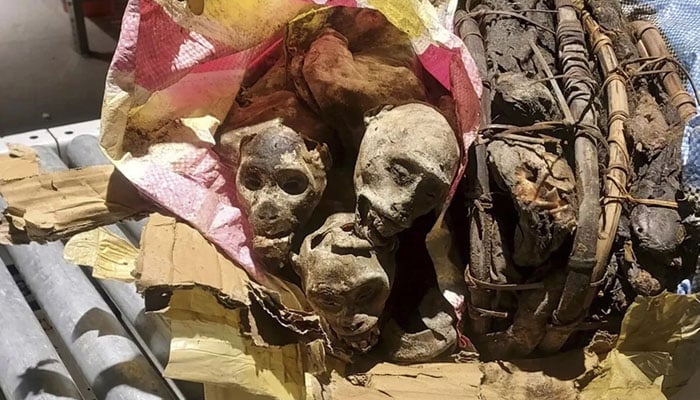Mummified monkeys, Harlequin frogs in luggage shock officials at US airports
Dogs at Boston Logan Airport sniff out mummified monkeys following another discovery of Harlequin frogs at American airports
Boston Logan Airport staff were taken aback when a security dog discovered mummified monkeys in a passenger's luggage who was returning from Africa.
The passenger returning from a visit to the Democratic Republic of Congo reported that the luggage contained dried fish, but an inspection at Boston Logan Airport revealed dead and dehydrated bodies of four monkeys, agents said.
The traveller said he brought the monkeys into the US for his own consumption, Ryan Bissette, a CPB spokesperson, said on Sunday, according to the Independent.
Because of the risk of illness, eating raw or minimally processed wild animal meat, also known as "bushmeat," is prohibited in the United States.
"The potential dangers posed by bringing bushmeat into the United States are real. Bushmeat can carry germs that can cause illness, including the Ebola virus,” said Julio Caravia, local port director for Customs and Border Protection.
Although the incident occurred last month, word of it broke on Friday.
The US Centres for Disease Control and Prevention designated the approximately 9 pounds (4 kilogrammes) of bushmeat for destruction, Bissette said on Sunday, even though no charges had been brought, all of the luggage had been seized.
Additionally, 130 Harlequin frogs were found in the suitcase of a Brazilian woman who was travelling to Sao Paulo via Panama earlier this month. She faces charges related to wildlife trafficking.
On Monday, authorities detained the suspected smuggler at Bogota's El Dorado International Airport after finding the deadly animals wrapped in tiny film canisters.
The frogs, also called poison-dart frogs, were characterised by officials as being "stressed" and "dehydrated."
-
Nobel Institute rejects Maria Corina Machado's suggestion, says 'Nobel Peace Prize' is non-transferable
-
Tropical Cyclone Koji: Thousands of Australians affected by mass power outages in Queensland
-
Greenland as geopolitical hotspot: Why Arctic region matters for US, China & Russia?
-
US 'Doomsday Plane' lands at LAX for the first time in its 51-year history
-
Australia on alert: State of disaster declared as Victoria’s bushfires rage
-
US Arctic strategy: Trump threatens to take Greenland ‘the hard way’
-
Environment Canada weather warning as cold front brings strong winds to Ottawa
-
Will Venezuela rebuild diplomatic relations with US?












